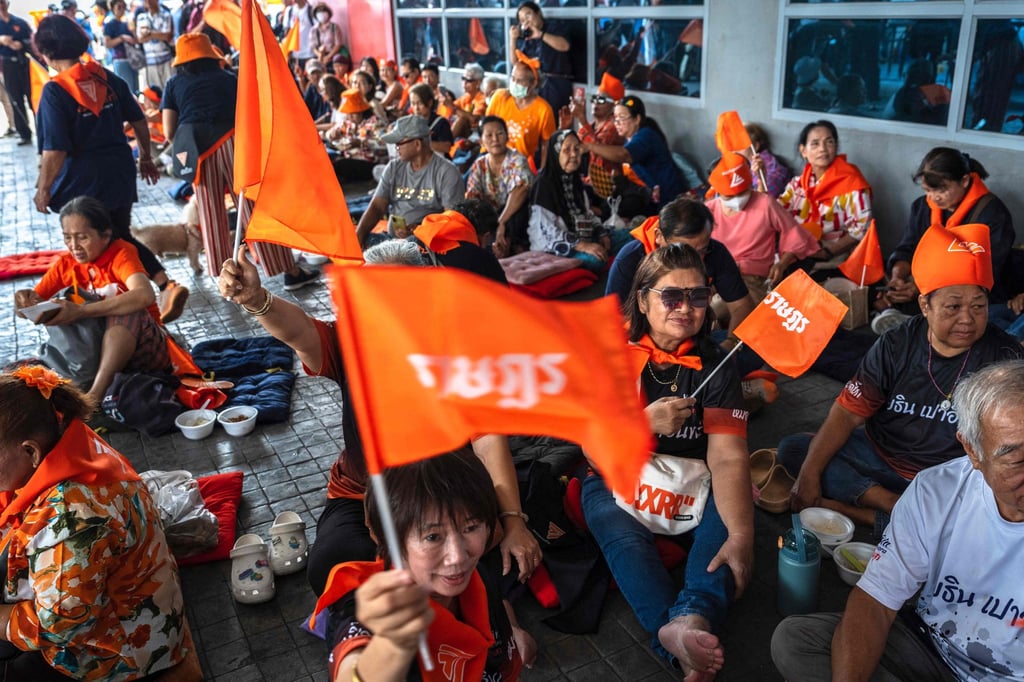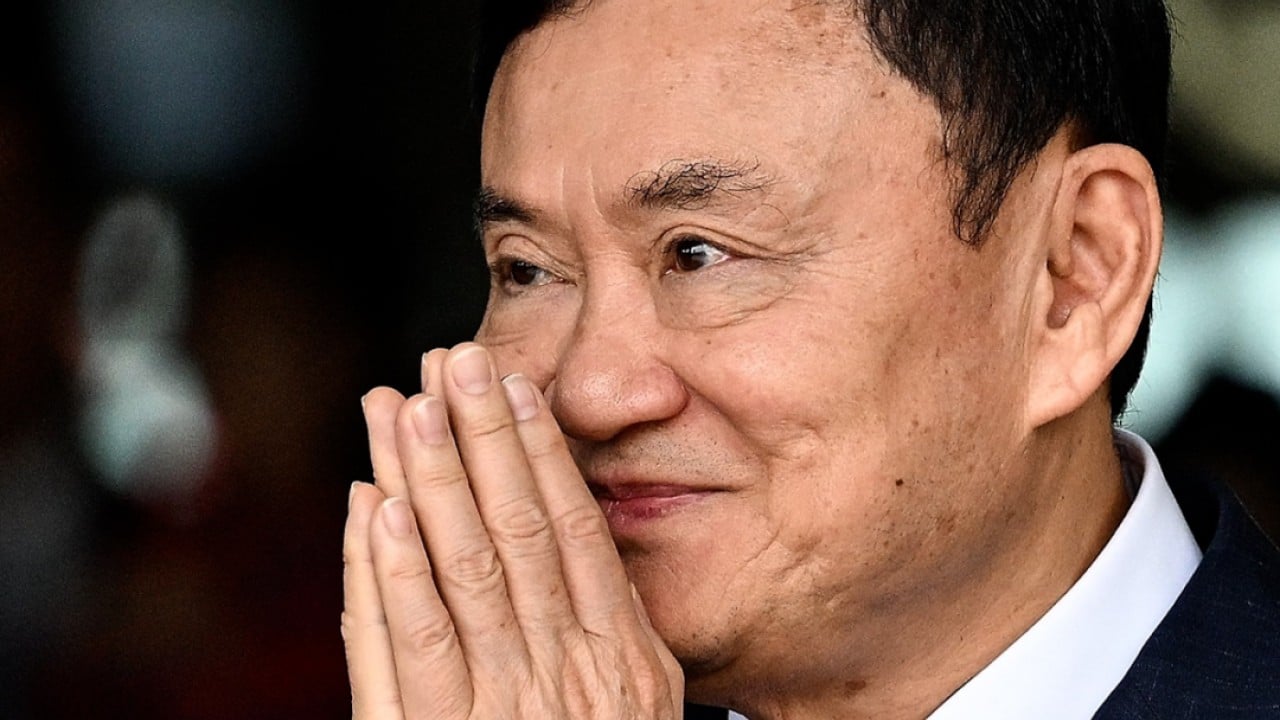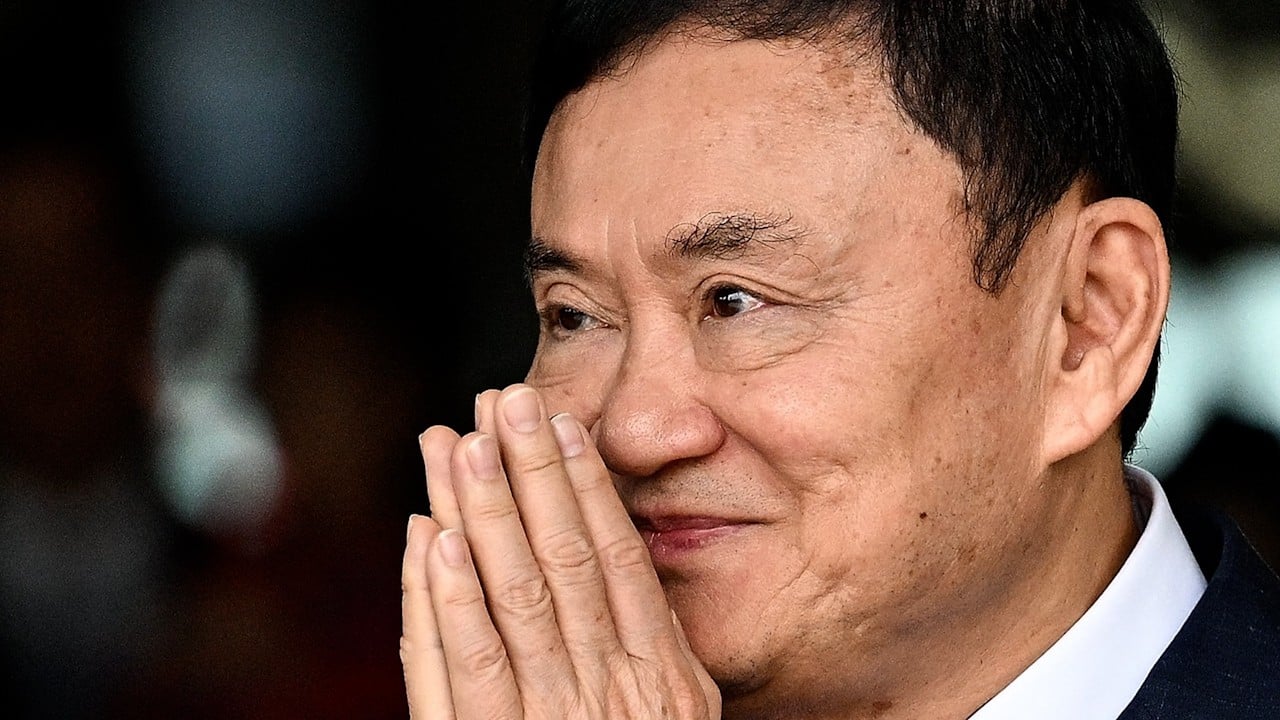Thailand’s Constitutional Court dissolved the pro-democracy Move Forward Party (MFP) and slapped a 10-year political ban on its executives on Wednesday for attempting to reform the country’s royal defamation law during its winning campaign for last year’s general election.
The ruling effectively wipes out the votes of 14 million people who had hoped for sweeping changes to one of Asia’s least equal societies; stubs out the political career of party frontman Pita Limjaroenrat and nudges Thailand deeper into political and economic crisis.
For two decades, Thailand’s arch-royalist conservatives, backed by the army, have smothered nascent pro-democracy movements with coups and court rulings.
In that time the economy has wilted from the bright spark of Southeast Asia to the slowest growing among its peers, with growth dribbling along at 1.9 per cent last year.
MFP, which won the most seats in 2023 polls with a radical reform agenda but was blocked from forming the government, is the latest party to be taken out after rattling the establishment with its anti-monopoly antidote for the economy, vow to unplug the army from politics and, crucially, push to reform the so-called “112” royal defamation law.

On Wednesday the nine-member bench ruled MFP was guilty of attempting to overthrow the monarchy with its campaign’s call to reform of the lèse-majesté law, which carries up to 15 years in jail per conviction of insulting the monarchy and effectively muzzles open debate on role of the kingdom’s apex institution in modern Thailand.
In protracted proceedings, the bench dissolved the party and banned its executives from politics for a decade in a ruling which said the “party’s policy to amend 112 is considered an attempt to denigrate the monarchy institution”.
The court found that “party executives violated the law indirectly by employing other MPs to present the amendment of 112 to the public” and “used the monarchy to win the popular vote”.
MFP is expected to swiftly regroup under a new name with new leadership.
Despite the blow of losing their best frontline political communicators – including Pita, 43, whose tilt for prime minister briefly electrified the nation – party members are confident the electoral future is theirs to lose.
At a press conference at MFP’s headquarters hours after the dissolution, the newly banned executives defended the party and said an announcement on the new political badge for those who will follow on August 9.
“My journey as an MP may be at an end, but as a Thai citizen I’m never going to leave you,” an emotional Pita told reporters.
“You may be disappointed and angry. I understand you, but let it all out today because tomorrow we will come through it … we have to express our anger by voting instead at every single election from here on in.”
Breaking the cycle
In 2020, the same court dissolved Future Forward, Move Forward’s predecessor, and banned its founding members one year after it came from nowhere to scoop up 6 million votes through a grass roots campaign calling for structural change.
That ban sparked mass protests, but MFP’s dissolution is not expected to as many key youth leaders have already jailed or charged under the royal defamation law that MFP tried to amend.
After last year’s poll, Pita was blocked from becoming prime minister by an army-appointed Senate.

MFP was also pushed into the opposition as a coalition of conservatives – including members of the unpopular last military-backed cabinet – took power under a government helmed by real estate tycoon Srettha Thavisin.
The ruling is another victory for the royalist conservatives who dominate Thai power and have successfully put the brakes on all emerging democratic movements over the last two decades with two coups, in 2006 and 2014, and endless court cases.
MFP’s diagnosis of the country’s systemic ills appealed to Thailand’s youth.
Many of them grew up under the shadow of a 10-year government by ex-army chief Prayuth Chan-ocha, who seized power in the last coup, and are struggling to find a place in a debt-burdened economy that is not providing well-paying jobs to graduates.
Now they have also lost political representation.
“Dissolution is certainly disruptive in the short term. Key leaders will be banned and Move Forward’s successor party will have to work on setting up its organisational infrastructure once again,” said Ken Lohatepanont, a PHD candidate in political science at the University of Michigan.
Party defections may allow the second placed Pheu Thai party of billionaire ex-prime minister Thaksin Shinawatra to leapfrog it and become the largest in parliament.
Pita has long talked up the longevity of the party’s ideology, which does not depend on Thailand’s patronage politics and money but has instead proved in successive elections that it dominates the battle of ideas.
With the opposition hobbled, Thailand’s conservative power players are also targeting Prime Minister Srettha.
Later this month the constitutional court is due to rule on an allegation Srettha knowingly breached the law by naming a Thaksin loyalist to a cabinet post despite the lawyer serving time in jail. The case is seen by analysts as a political hatchet job.
Yet Srettha could be removed from office, forcing the government to collapse and a new coalition to be forged, with Pheu Thai having to make fresh deals with its rivals.
“The Pheu Thai government itself is likely to stay safe – the strategic situation requires the Thaksinites and the conservatives to remain in coalition in order to keep the progressives out of government,” Lohatepanont added. “But Srettha himself is not quite as secure. He has never been entirely safe in his position, given his political inexperience, lack of a power base in the party, and absence of electoral appeal.”



